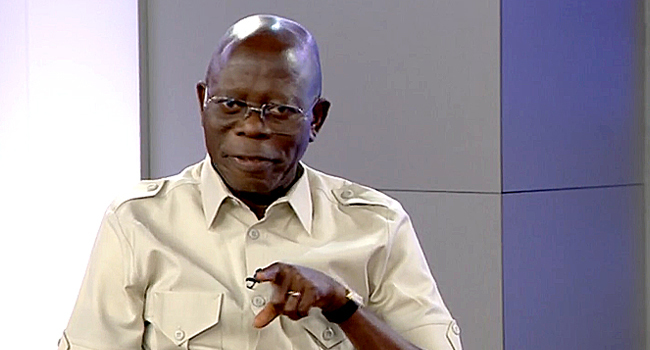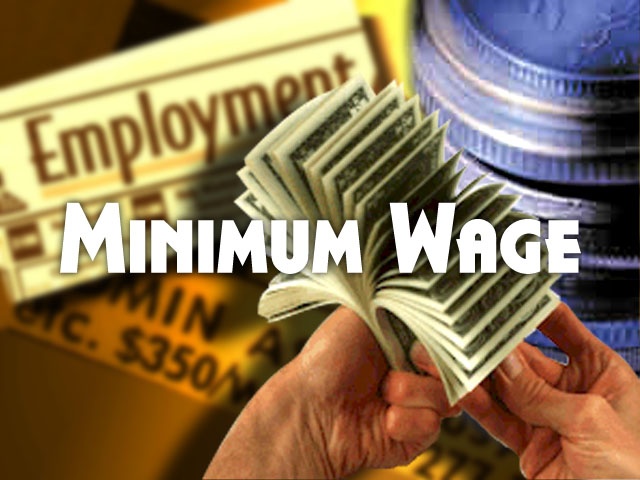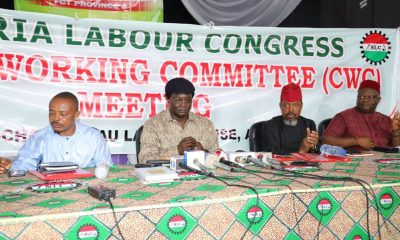NEWS
My Cleaner earns more than the minimum wage — Oshiomhole

The minimum wage is a criminal wage — Adams Oshiomhole says.
In a recent interview with Channels Television’s Sunday Politics, Senator Adams Oshiomhole, representing the Edo North senatorial district, sparked controversy by describing the current N30,000 monthly minimum wage in Nigeria as a “criminal wage.”
The former governor of Edo state emphasized that the current standard fails to adequately address the economic realities faced by many citizens.
During the interview, Oshiomhole expressed his concerns about the depreciating value of the minimum wage, especially when compared to historical rates.
He lamented that if the initial minimum wage, introduced during the government of President Shehu Shagari, was converted to present-day currency exchange rates, it would have been two to three times higher than the current figure.
To underscore his argument, Oshiomhole offered a personal example of his cleaner’s remuneration, stating that she earns no less than N60,000 per month.


He asserted that as an employer, he could not, in good conscience, offer a wage that falls below a certain threshold, considering the economic challenges faced by many Nigerian workers.
“If I have chosen to employ a cleaner and chosen not to clean the house by myself, that is the least I thought I could pay,” Oshiomhole stated firmly, highlighting his commitment to fair compensation for his employees.
The senator emphasized that the minimum wage should reflect the prevailing economic conditions and the basic needs of workers.
He argued that the current N30,000 monthly pay might be insufficient to provide a comfortable standard of living, but it should serve as an “irreducible minimum” for workers to survive in the face of economic challenges.
“I can tell you what I have decided to pay my cleaner. My cleaner is just a primary school – I’m not sure she has even a school leaving certificate. But she’s knowledgeable enough to clean the house,” Oshiomhole shared, revealing his personal approach to employee compensation.
He further elaborated on his commitment to ensuring reasonable wages for employees, irrespective of their educational background, stating,
“I found myself unable to pay her less than N60,000 – in fact, N60,000. It’s about my conscience. I’m trying to imagine what she has to pay for a house. She told me she has four children. I’m trying to imagine how she has to look after those children, and I cannot question why she should have four children.”
Oshiomhole also stressed the importance of recognizing the contributions of private-sector employees, whom he described as more responsible and hardworking than some government workers.
He highlighted the need for additional compensation for his driver, who requires continuous training and sometimes retraining, considering the critical responsibilities associated with the job.































